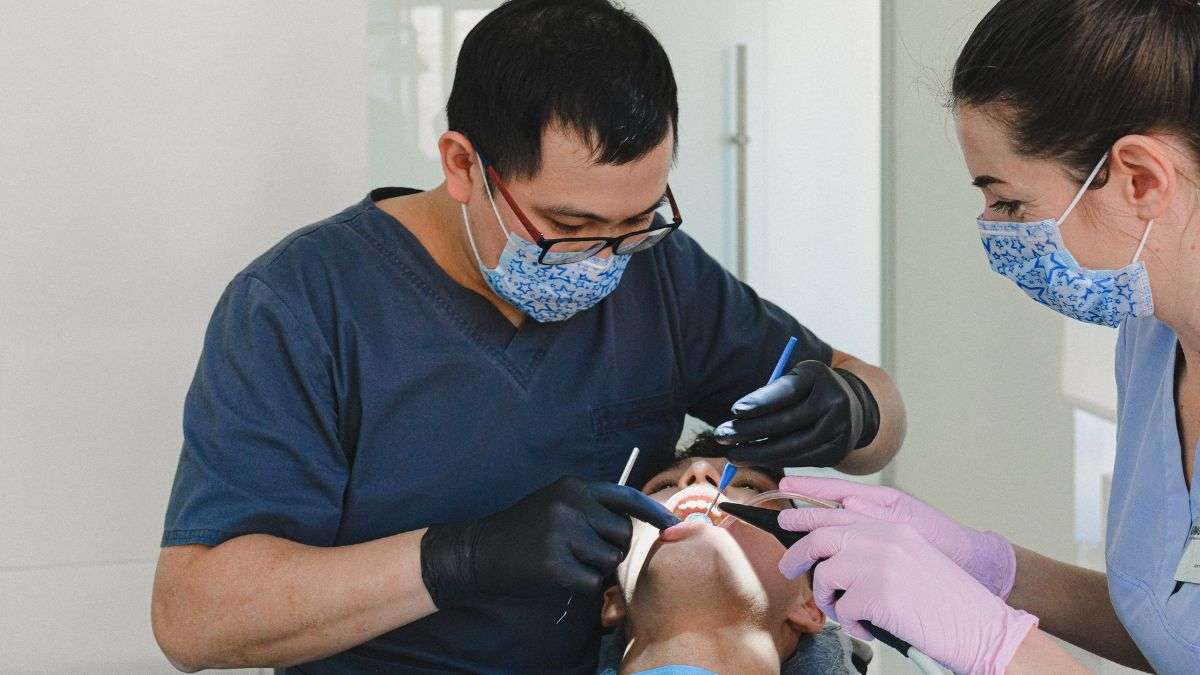We’ve put together a list of the top ten dental schools in North Carolina. As well as the requirements for getting into dental schools in North Carolina.
Dentistry is a popular course among applicants in North Carolina, NC. Nevertheless, obtaining a dentistry degree from one of the top dental hygiene schools in North Carolina is hugely advantageous.
This post provides potential students with information on the right dental schools to pick from, as well as high-ranking institutions where they can pursue a dentistry degree.
What is a dental school?
A dental school is a tertiary academic institution (or part of one) that focuses on teaching dental medicine to upcoming dentists and possibly other dental assistants.
Dental graduates obtain a degree in dentistry, dental surgery, or dental medicine, which may be a bachelor’s degree, master’s degree, professional degree, or doctorate.
What are the subcategories of dental programs?
There are so many subcategories of dental programs, which are listed below:
- Postgraduate training is below:
- Endodontics
- Oral and maxillofacial surgery
- Oral Pathology
- Pedodontics
- Oral and maxillofacial radiology
- Orthodontics
- Periodontics
- Prosthodontics
- Dental public health
- Restorative dentistry
Postgraduate training for dental hygienists and dental technicians can also be provided by schools.
Also, dental hygienists, dental technicians, and denturists are part of the subcategory of dental programs. Which includes dental therapists and oral health therapists, these are some of the other oral health professionals.
What is it Like During Training in Dental Schools In North Carolina?
Most students at dental schools in North Carolina take chemistry, biology, microbiology, anatomy, neuroscience, and pathophysiology as required courses.
Verbal anatomy, dental pharmacognosy, a dental equipment lab, radiology, and pain control are some of the specialized courses available to aspiring dentists.
Furthermore, while dealing with patients is an important part of a dentist’s job, students may be required to take connectivity tutorials as well.
How Much does it Cost to attend a Dental School in NC?
If you register in dental schools in North Carolina for your dental hygiene studies, you can earn an associate degree for as little as $3,660 but can cost up to $40,620.
State residents may only have to pay just under $17,000 in tuition fees, while those attending a private university may pay up to $75,000.
Masters programs are also available for dental graduates who wish to do experiments or teach.
These programs last another year or two and charge between $22,000 (for North Carolina residents enrolled in a college that receives government funds) and $68,200. (at a private university).
How long does it take to complete a dental program?
In 20 to 30 months from the period of admission, freshmen of dental schools are likely to graduate with an associate degree if that was the aim. However, several dental schools necessitate a four-year study interval for proper certification of a bachelor of dental health degree.
Some schools also offer a Master of Science program, which would normally take about 2 years to complete, all things being equal.
What are the best dental schools in North Carolina?
Dentistry can always be a profitable and wise financial commitment. And the ordinary dentist’s income isn’t too shabby either.
However, the confidence interval for many new dentists is less than it’s ever been. This is why we have taken the time to list these dental schools in North Carolina for you to pick from.
1. The University of North Carolina at Chapel Hill
With 18,303 undergraduates, it is a massive university. With its 24% acceptance rate, admission is intense.
Conversation, biology, and psychology are popular degree courses. Former UNU students earn starting salaries of $41,000 when 91 percent of students graduate. This is one of the best dental schools in North Carolina.
2. Coastal Carolina Community College
It is a minimal public university with a school community of 1,964 undergrads.
Coastal Carolina Community College has a 100% acceptance rate. Liberal humanities, mechanical engineers, and medical clinic management are also famous degree courses.
Coastal Carolina CC graduates earn starting salaries of $20,300 after graduating in 46 percent of cases.
3. Wake Technical Community College
Wake Technical Community College, located in Raleigh, North Carolina, is a large community institution. Southern Wake Campus, its first location, was launched in 1963. Wake Tech now has numerous campuses spread across Wake County.
It is a medium-sized university with a total enrollment of 7,362 undergraduate students having a 100% acceptance rate.
Students in all degree, diploma and certificate programs at Wake Tech must maintain satisfactory academic progress, defined as a cumulative GPA of at least 2.0 based on credit hours attempted, throughout their enrollment.
4. Raritan Valley Community College
RVCC charges $6,672 USD for Associate degree courses resulting in an Associate of Arts, Science, Fine Art, or Applied Science, as well as diploma courses and training courses.
RVCC, on the other hand, is a participant in the New Jersey Community College Opportunity Grant Program (NJ CCOG), which provides qualified students with free college tuition.
For up to 18 credits per semester, qualified students will be given free tuition and most academic service free.
Read also: List of the Most Expensive Dental Schools in the World
5. Central Piedmont Community College
Central Piedmont is the 2nd largest public university in the North Carolina Community College System and the biggest in the Charlotte metro region, with over 50,000 students enrolled each year.
As shown in recent research by personal finance online platform WalletHub, North Carolina has one of the best community college systems in the country.
You must, however, have a high school diploma or GED and be a U.S. citizen or eligible non-citizen to be enrolled or accepted for enrollment in an eligible program.
6. Fayetteville Technical Community College
Fayetteville Technical Community College is a two-year state school located in Fayetteville, North Carolina. The school is a part of the North Carolina Community College System and is accredited by the Southern Association of Colleges and Schools Commission on Colleges.
Fayetteville Technical Community College has received regional accreditation. Attending a regionally accredited college is essential if you plan to transfer credits to another university or pursue a post-graduate degree.
A high school student must, therefore, meet the following criteria to be eligible for enrollment: Junior or senior in high school. GPA in high school of 2.8 or higher (unweighted).
7. Guilford Technical Community College
GTCC provides an excellent education that will prepare you to proceed toward a brighter future, whatever that is. It is the fourth-largest public university in North Carolina and the biggest in the Piedmont Triad.
Guilford Technical Community College is also accredited by the Commission on Colleges of the Southern Association of Colleges and Schools to award associate degrees, diplomas, and certificates.
Student fees are set by the GTCC Board of Trustees in accordance with the State Board of Community Colleges and are liable to change. In-state tuition is currently $76.00 per credit. Out-of-state credit is $268.00 per credit.
8. Cape Fear Community College
Cape Fear Community College is a multi-campus, transparent public university that improves the educational, financial, social, and historical lives of residents in New Hanover and Pender counties.
It is a small university with a total enrollment of 2,980 undergraduate students and a 100% acceptance rate.
Cape Fear Community College announced that eligible 2022 North Carolina high school graduates will have their tuition and fees paid for up to two years at CFCC.
9. Rowan-Cabarrus Community College
Through public higher education and workforce development, Rowan-Cabarrus Community College improves lives and strengthens communities.
It is a member of the North Carolina Community College System and offers associate degree programs in over 40 fields of study.
Rowan-Cabarrus Community College uses a semester system and an online course scheduling tool known as Student-Self Service, which can be accessed by logging in to WebAdvisor.
The registration process is one by which students meet or communicate with an advisor in order to develop a course plan.
10. Forsyth Technical Community College
With over 11,000 credit students and over 24,000 corporate and continuing education students, this school is one of the largest in the North Carolina Community College System.
The educational scheme usually needs a term GPA of 2.25 and a graduation rate of 75%; however, different requirements may be set in certain circumstances.
If the appeal is denied, the student may file a second appeal with the Forsyth Technical Community College Financial Aid Advisory Committee.


 Jobi.ng
Jobi.ng






